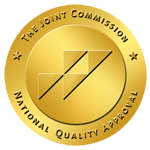
An Advance Directive is a written document stating how you want medical decisions to be made if you lose the ability to make them for yourself. It may include a living will and a durable power of attorney for health care.
Spiritual and emotional support after the passing of a loved one through visitation, conversation, grief counseling and support groups.
A caregiver is someone who gives care to another person. Caregivers can be your spouse, other family members, a friend or someone you hire to help you with your care.
Certified Nursing Assistants (CNA) works closely with patients and are responsible for basic care services such as bathing, grooming, feeding, and assisting nurses with other duties such as checking vital signs.
Durable medical equipment consists of certain medical equipment, like a walker, wheelchair, or hospital bed, that's ordered by your doctor for use in the home.
Face to Face encounter is performed by a patient’s physician, prior to or shortly after admission to Home Health Care. The FTF encounter documents the patient’s homebound status and the medical necessity for home health care.
The "Standard for Privacy of Individually Identifiable Health Information (also called the "Privacy Rule")" of HIPPA assures your health information is properly protected while allowing the flow of health information needed to provide and promote high-quality health care and to protect the public's health and well being. View more info about HIPPA
Homebound means you have trouble leaving your home without help (like using a cane, wheelchair, walker, or crutches; special transportation; or help from another person) because of an illness or injury, or leaving your home isn't recommended because of your condition, and you're normally unable to leave your home because it's a major taxing effort. You may leave home for medical treatment or short, infrequent absences for non-medical reasons, like attending religious services.
Home Health Aide is a trained professional (Certified nurse assistant) who’s primary tasks include personal care and assistance with activities of daily living in the patient’s home.
Home health care is a wide range of health care services that can be provided in your home for an illness or injury. Your physician decides what services you may need in your home. Home health care helps you get better, regain your independence, and become as self-sufficient as possible.
Hospice is a special way of caring for people who are terminally ill. Hospice care involves a team-oriented approach that addresses the medical, physical, social, emotional, and spiritual needs of the patient. Hospice also provides support to the patient's family or caregiver.
Medicaid is a joint federal and state program that helps with medical costs for some people with limited income and resources. Medicaid programs vary from state to state, but most health care costs are covered if you qualify for both Medicare and Medicaid. View more information regarding MEDICAID.
Medically Necessary means health care services or supplies needed to diagnose or treat an illness, injury, condition, disease, or its symptoms and that meet accepted standards of medicine.
Medical Social Worker provides case management, coordination of community resources, and assistance with the social/emotional effects of coping with acute and chronic illness in the home.
Medicare is the federal health insurance program for people who are 65 or older, certain younger people with disabilities, and people with End-Stage Renal Disease (permanent kidney failure requiring dialysis or a transplant, sometimes called ESRD).
Occupational therapy is a treatment that helps you return to your usual activities (like bathing, preparing meals, and housekeeping) after an illness or injury.
Physical therapy is a treatment of an injury or illness by mechanical means, like exercise, massage, heat, and light treatment.
Psychiatric Nursing is provided, under the direction of a physician, by a Registered Nurse who has met certain experience and training requirements prior to providing skilled psychoactive treatments in the patient’s home.
Referral is a written order from your primary care doctor for you to get certain medical services.
Rehabilitation services are health care services that help you keep, get back, or improve skills and functioning for daily living that you've lost or have been impaired because you were sick, hurt, or disabled. These services may include physical and occupational therapy, speech-language pathology, and psychiatric rehabilitation services.
Respite Care is temporary care provided in a nursing home, hospice inpatient facility, or hospital so that a family member or friend who is the patient's caregiver can rest or take some time off.
Service area is a geographic area where a Home Health Agency is licensed to provides services. You must reside within the Agency’s service area to receive services. View our Service Area.
Skilled nursing care is medical care provided by a registered nurse or a licensed vocational nurse.
Speech-language therapy is a treatment that helps you strengthen or regain speech, language, and swallowing skills.
The Joint Commission is an independent, not-for-profit organization. The Joint Commission accredits and certifies nearly 21,000 health care organizations and programs in the United States. Joint Commission accreditation and certification is recognized nationwide as a symbol of quality that reflects an organization’s commitment to meeting certain performance standards.
Fill out the form below, and a member of our team will contact you to come up with the right caregiving plan for you & your family.